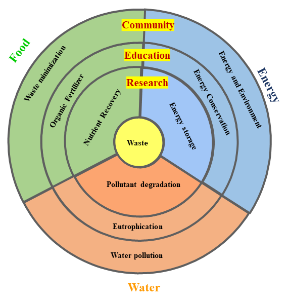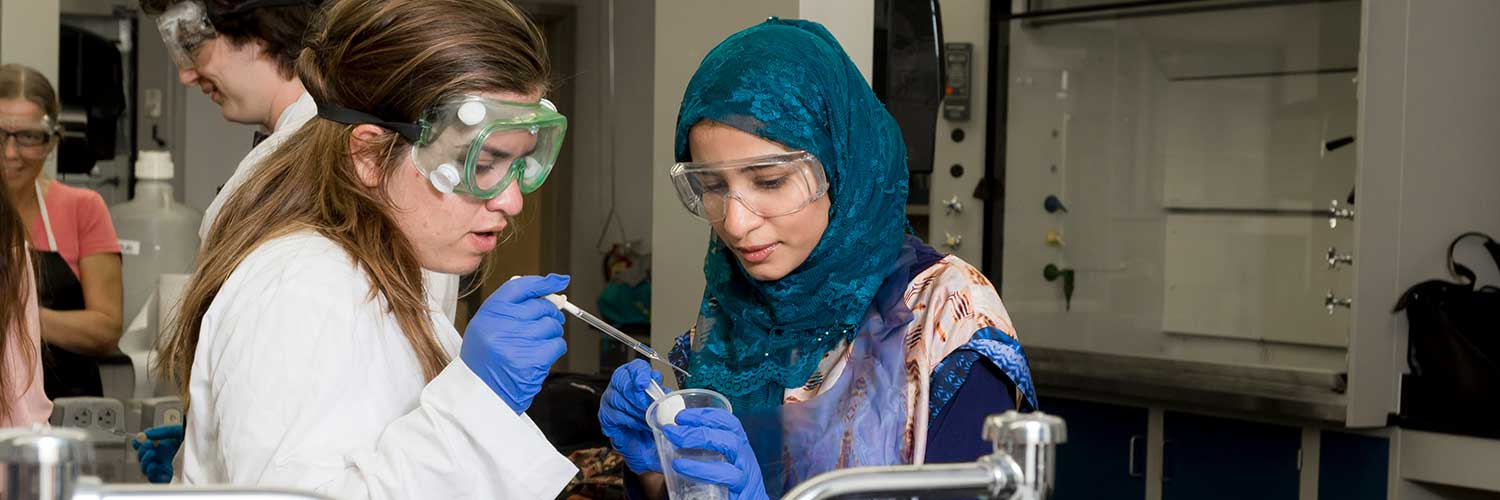Energy and Environment Research
Reza Research Group | Dr. Toufiq Reza
With a rapidly growing world population already over 7.2 billions, two significant challenges the world faces in its immediate future are a limited supply of viable energy and water sources and sustainable treatment of wastes. Reza Research Group of the Chemical Engineering Program of Florida Tech has several ongoing projects on recovery energy and water from unwanted wastes by applying fundamental engineering concepts and advanced physicochemical, thermal, and biological processes.
These projects are specifically focused on developing engineered processes for the production of sustainable and cost-competitive renewable energy and carbon-based materials. The primary goals of these projects are to valorize negative value wastes by producing solid fuel, fertilizer, or adsorbent.
Waste to Energy
Many biowaste streams contain high moisture content and are simultaneously rich with energy. Projects in this area focus on valorizing various waste streams (e.g., food waste, corn stover, loblolly pine waste, animal manure) by converting them into solid fuel by applying thermochemical processes like hydrothermal carbonization, hydrothermal liquefaction, supercritical water gasification, pyrolysis, torrefaction, and gasification. In addition, their co-combustion characteristics are also investigated by blending with coal.
Carbon Capture
Carbon capture, utilization, and storage are essential against global warming. Projects focusing on multiple aspects of carbon capture are currently ongoing. For instance, we are looking into capturing carbon dioxide from biogas. Biogas produced from anaerobic digestion of wet wastes contains primarily of methane and carbon dioxide. Carbon capture from biogas could upgrade biogas into renewable natural gas that can be connected to the natural gas pipeline. Novel deep eutectic solvents are used to capture carbon dioxide from biogas.
At Florida Tech, multiple researchers from College of Engineering and Science including Dr. Reza are conducing research on capturing carbon dioxide from air. Air contains 400 parts per million (ppm) of carbon dioxide, which can be separated by using novel solid adsorbents. This technology is called direct air capture (DAC). A modular DAC system is currently being developed for use in carbon dioxide utilization site.
Water Treatment
Raw biomass is not feasible to use as adsorbents, because of their low sorption capabilities, and also their hydrophilic natures tend them to rot under water. Thus, stabilization is necessary for the material use of waste-carbon. Raw biomass contains 60-95% moisture, and that’s why hydrothermal carbonization (HTC) is by far the better choice for stabilizing such biomass. Moreover, hydrochar, the solid product of HTC, is hydrophobic, amorphous, functionally rich, friable, and homogenous in nature. The objective of this project to produce hydrochar from various waste streams (e.g., winery waste, citrus waste, municipal waste, etc.) and use them to remove targeted emerging pollutants from water.


 Give to Florida Tech
Give to Florida Tech 